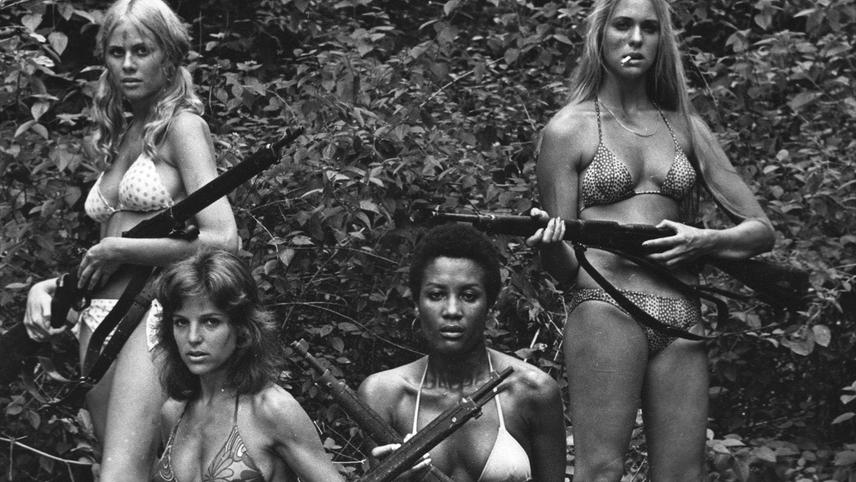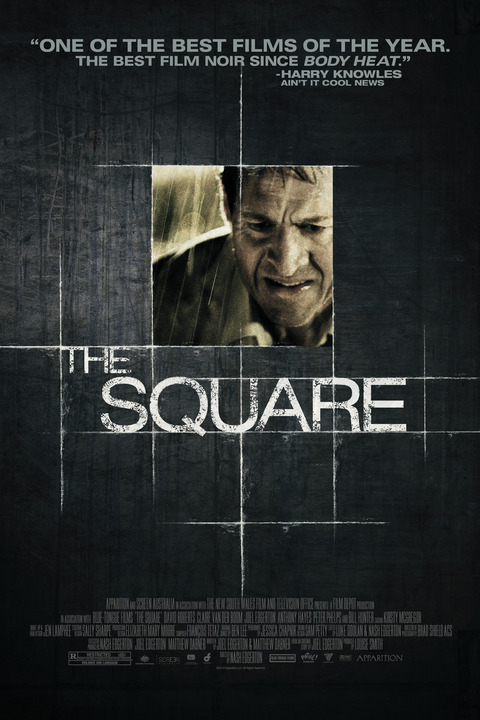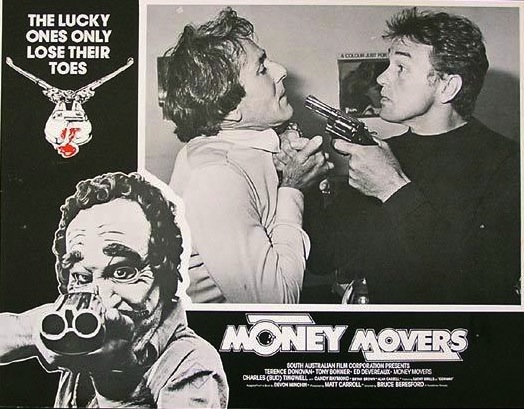Search
-
Recent Posts
- Dishing up Pulp Curry in a new way: why I am starting a Substack newsletter
- Book reviews: Deadly dames, midcentury Brit pulp and 1970s science fiction
- Mackenna’s Gold (1969): Gold, Ghosts and Frontier Violence
- Orphan Road book launch
- Orphan Road now available
- Pre-orders open for my new novel, Orphan Road
- Cover reveal: Orphan Road, my follow up to Gunshine State
- Breakfast in the Ruins podcast: New English Library Bikermania
- Why 1973 was the year Sidney Lumet took on police corruption
- Men’s Adventure Quarterly: Gang Girls issue
Categories
- 1960s American crime films
- 1970s American crime films
- 1980s American crime films
- 1990s American crime films
- Adrian McKinty
- Albert Dekker
- Andre De Toth
- Angela Savage
- Angie Dickinson
- Anthony Zerbe
- Asian noir
- Australian crime fiction
- Australian crime film
- Australian noir
- Australian popular culture
- Australian pulp fiction
- Australian television history
- Ava Gardner
- Beat culture
- Belmont Tower Books
- Ben Wheatley
- Billie Whitelaw
- Black pulp fiction
- Blaxsploitation
- Book cover design
- Book Reviews
- British crime cinema
- British pulp fiction
- Bryan Brown
- Burt Lancaster
- Carter Brown
- Charles Durning
- Charles Willeford
- Chester Himes
- Christopher G Moore
- Christopher Lee
- Cinema culture
- Claude Atkins
- Coronet Books
- Crawford Productions
- Crime Factory
- Crime Factory Publications
- Crime fiction
- Crime fiction and film from Africa
- Crime fiction and film from Cambodia
- Crime fiction and film from China
- Crime fiction and film from India
- Crime fiction and film from Indonesia
- Crime fiction and film from Japan
- Crime fiction and film from Laos
- Crime fiction and film from Latin and Central America
- Crime fiction and film from Malaysia
- Crime fiction and film from New Zealand
- Crime fiction and film from Scandinavia
- Crime fiction and film from Singapore
- Crime fiction and film from South Korea
- Crime fiction and film from Thailand
- Crime fiction and film from the Philippines
- Crime Fiction and film set in Vietnam
- Crime film
- Dangerous Visions and New Worlds Radical Science Fiction 1950 to 1985
- David Goodis
- David Peace
- David Whish-Wilson
- Derek Raymond
- Diana Dors
- Dirk Bogarde
- Don Siegel
- Don Winslow
- Donald Westlake aka Richard Stark
- Dystopian cinema
- Ernest Borgnine
- Eurocrime
- Fawcett Gold Medal Books
- Femme fatale
- Fernando Di Leo
- Filipino genre films
- Film Noir
- Forgotten Melbourne
- French cinema
- French crime fiction
- Garry Disher
- Gene Hackman
- George V Higgins
- Georges Simenon
- Ghost Money
- Giallo cinema
- Gil Brewer
- Girl Gangs, Biker Boys and Real Cool Cats: Pulp Fiction & Youth Culture, 1950-1980
- Gloria Grahame
- Gold Star Publications
- Gregory Peck
- Gunshine State
- Heist films
- Horror
- Horwitz Publications
- Humphrey Bogart
- Ian Fleming
- Interviews
- Ira Levin
- James Caan
- James Crumley
- James Ellroy
- James Hadley Chase
- James Woods
- Jim Brown
- Jim Thompson
- Joel Edgerton
- John Frankenheimer
- Joseph Losey
- Karen Black
- Kerry Greenwood
- Kinji Fukasaku
- Larry Kent
- Laura Elizabeth Woolett
- Lee Marvin
- Leigh Redhead
- Lindy Cameron
- M Emmet Walsh
- Mad Max
- Mafia
- Malla Nunn
- Martin Limon
- Megan Abbott
- Melbourne International Film Festival
- Melbourne Writers Festival
- Men's Adventure Magazines
- Michael Caine
- Michael Fassbender
- Mickey Spillane
- Monarch Books
- Ned Kelly Awards
- Neo Noir
- New English Library
- Newton Thornburg
- Noir Con
- Noir fiction
- Non-crime reviews
- Oren Moverman
- Orphan Road
- Ozsploitation
- Pan Books
- Parker
- Paul Newman
- Peter Boyle
- Peter Corris
- Peter Strickland
- Peter Yates
- Poliziotteschi
- Pulp fiction
- Pulp fiction in the 70s and 80s
- Pulp fiction set in Asia
- Pulp Friday
- Pulp paperback cover art
- Qui Xiaolong
- Raymond Chandler
- Richard Burton
- Richard Conte
- Robert Aldrich
- Robert Mitchum
- Robert Ryan
- Robert Stone
- Rock Hudson
- Roger Smith
- Rollerball
- Rosaleen Norton
- Roy Scheider
- Rural noir
- Sam Levene
- Sam Peckinpah
- Samuel Fuller
- Science fiction and fantasy
- Scripts Publications
- Sidney Lumet
- Sidney Poitier
- Simon Harvester
- Snowtown
- Snubnose Press
- Spies
- Stanley Baker
- Sterling Hayden
- Steve McQueen
- Sticking it the the Man Revolution and Counter Culture in Pulp and Popular Fiction 1950 1980
- Stuart Rosenberg
- Tandem Books
- Tart noir
- Tartan Noir
- Ted Lewis
- Toni Johnson Woods
- True crime
- Vicki Hendricks
- Victor Mature
- Vintage mug shots
- Vintage pulp paperback covers
- Wallace Stroby
- War film
- Westerns
- William Friedkin
- Woody Strode
- Yakuza films
- Yaphet Kotto
Nothing but noir
Recommended reading
The lurid world of pulp
- 20th century Danny Boy
- American Pulps
- Bear Alley
- Bloody, Spicy, Books
- Comics Down Under
- Everything second hand
- Existential Ennui
- Greenleaf Classic Books
- Irv O. Neil's Erotica is My Trade
- Killer Covers
- Lost Classics of Teen Lit 1939-1989
- Luminist Archives
- Men's Pulp Mags
- Mporcius Fiction Log
- Murder, Mayhem and Long Dogs
- Neglected Books
- Nocturnal Revelries
- Paperback Warrior
- Paperbacks of the Gods
- Pop Sensation
- Pulp artists
- Pulp Covers
- Pulp Crazy
- Pulp Flakes
- Pulp International
- Pulp Magazines Project
- Pulp Serenade
- Realms of the Night
- Romance Fiction Has a History
- Rough Edges
- Sin Street Sleaze
- Spy Guys and Gals
- The department of Afro American Research Arts & Culture
- The Dusty Bookcase
- The Haunted World of Richard Sala
- The Moon Lens
- The Nick Carter & Carter Brown Blog
- The Pulp & Paperback Fiction Reader
- Too Much Horror Fiction
- True Pulp Fiction
- Vault of Horror
- Vintage Nurse Romance Novels
- Vintage Romance Novels
- Welcome to the Pan Paperback
- Yellow and Creased
Support This Site
If you like what I do please support me on Ko-fi
Category Archives: Crime film
Cutter’s Way: post traumatic noir
 American crime films in the seventies and early eighties were littered with the damaged veterans of the Vietnam War.
American crime films in the seventies and early eighties were littered with the damaged veterans of the Vietnam War.
They appear in most of the key crime sub-genres: the revenge film (Rolling Thunder), the road movie (Electra Glide in Blue), the drug sub-culture (Who’ll Stop the Rain, the adaption of Robert Stone’s novel, Dog Soldiers), and Blaxsploitation (the 1973 film, Gordon’s War, to name just one of many).
Film noir’s contribution is the 1981 movie, Cutter’s Way.
As Woody Haut argued in Neon Noir, his book on contemporary American crime fiction, Vietnam not only damaged the body politic it blurred the line between the perpetrators of crimes and the people who investigate them. In Cutter’s Way the quest to avenge a young woman’s murder is left to the rejects and outsiders who populate the underbelly of post-Vietnam American society.
Richard Bone (Jeff Bridges), a part-time gigolo and boat salesman, is returning from a late night assignation when his beat-up car stalls in an alleyway. Another vehicle pulls up behind him and in the heavy rain and headlight glare we see a man get out and throw something into a nearby rubbish bin. The car speeds off, nearly hitting Bone in the process.… Read more
Machete Maidens Unleashed: American genre movies in the Philippine jungle
 I love documentaries about filmmaking. Every now and again one of comes along that gives you a particularly fascinating insight into part of the world of cinema you never knew existed.
I love documentaries about filmmaking. Every now and again one of comes along that gives you a particularly fascinating insight into part of the world of cinema you never knew existed.
Machete Maidens Unleashed, the latest effort from the director of Not Quite Hollywood, Mark Hartley, is one of these films.
From the beginning of the seventies well into the early nineties, the Philippines was the location of choice for every American B movie hack (or visionary, take your pick) wanting to make a movie.
They churned out horror, action, and kung fu pics, Blaxsploitation, the classic Western-women-in-third-world-prison films (such as Big Dolls House), and a whole lot more, blurring all the lines and genres. They did a version of Jaws. They even ripped off James Bond in a low-budget cult classic called For Your Height Only, staring an 83cm Filipino dwarf called Weng Weng.
It is this largely unknown world of Filipino genre films that Hartley has turned his attention to in Machete Maidens Unleashed, which had its world premier in late July at the Melbourne International Film Festival.
Hartley traces the origins of this wave of movies, from the first B-monster pics such as Brides of Blood to the arrival in the early seventies of independent cinema greats like Roger Corman, Joe Dante and John Landis, to Francis Ford Coppola’s bloated Vietnam era pic, Apocalypse Now.… Read more
The Square: small town noir Australian style
 Tales of money, betrayal, lust and murder set in the underbelly of rural small town life are a major thematic strand of film noir. Australia’s contribution to this, released locally to mixed reviews in 2008, is The Square.
Tales of money, betrayal, lust and murder set in the underbelly of rural small town life are a major thematic strand of film noir. Australia’s contribution to this, released locally to mixed reviews in 2008, is The Square.
The location selected by first time director and writer Nash Edgerton is the central coast of New South Wales, where the laid back life-style and stunning countryside exist side by side with pockets of deep poverty and a highly casualised workforce.
The opening scene of The Square takes place at dawn. Two people are having sex in the back seat of a car to the accompanying drone of cars crossing a nearby overpass. They finish, pausing long enough for us to notice their wedding rings, before going their separate ways.
The man, Ray, pulls into a clearing in the middle of thick bushland and enters the portable office from which he is supervising the construction of a resort for honeymooners. The young woman, Carla, drives to her job in a hairdressing parlour.
Before long, Ray is getting a hard time down from Gil, the developer (long time Australian actor, Bill Hunter) for failing to keep costs down. There’s no need for anything fancy, Gil tells him, all they are building is a place were “couples can root in Jacuzzis”.… Read more
The Red Riding trilogy: David Peace’s Northern England nightmare
 Seldom does the nuance and grit of hard-boiled and noir crime fiction translate to the screen. A brilliant exception is the movie adaptations of English writer David Peace’s Red Riding Quartet of books.
Seldom does the nuance and grit of hard-boiled and noir crime fiction translate to the screen. A brilliant exception is the movie adaptations of English writer David Peace’s Red Riding Quartet of books.
Tony Crisoni – who has very few credits of note under his belt with the exception of the screenplay for the 1998 version of Fear and Loathing in Las Vegas – has taken Peace’s dense, multi-layered alternative history of murder and police corruption in northern England in the seventies and early eighties, and delivered three disturbing and gripping movies. A feat that is all the more amazing given they were made for TV in the UK.
The first film, 1974, follows cocky young reporter Eddie Dunford as he attempts to prize open the mystery surrounding the unsolved murders of a number of young girls, the latest of whom has just been found sexually abused and with swan’s wings stitched to her back.
In the course of his investigation he comes into contact with John Dawson, a local businessman embroiled in a corrupt relationship with the police, and BJ, an elusive male prostitute. He also becomes sexually involved with the despondent mother of one of the missing girls. In the face of escalating threats, Dunford continues his efforts to find the truth with horrendous consequences.… Read more
Posted in Crime fiction, Crime film, David Peace, Neo Noir
Tagged David Peace, Red Riding
Money Movers: unearthing a rare Australian noir
 There’s a lot of justified hype about the period of Australian film from the mid-seventies to the mid-eighties known as “Ozploitation”, when the creation of film funding bodies and the introduction of government tax breaks to encourage investment in the industry saw an explosion of local production.
There’s a lot of justified hype about the period of Australian film from the mid-seventies to the mid-eighties known as “Ozploitation”, when the creation of film funding bodies and the introduction of government tax breaks to encourage investment in the industry saw an explosion of local production.
But there was one genre of movie the Ozploitation period did not do well or often – crime.
One of the few exceptions is Bruce Beresford’s heist movie, Money Movers. Adapted from the novel of the same name by an ex-security officer, like a lot of films from the Ozploitation period, Money Movers completely flopped when it was released in 1979.
Unlike like a lot of the Ozploitation movies that have since gone on to enjoy critical and cult acclaim, Money Movers remains little known or appreciated, despite a dvd version being released in 2004. This is a pity because Money Movers is proof Australia could knock out a noir as gritty and multi-layered as the best of them.
Its hardboiled feel is established in the opening scenes, muster time in the counting house of Darcy’s Security Services. The armoured car drivers exchange jokes and take a last drag on their cigarettes before going on the weekly bank run. Two of them, Brian Jackson (iconic Australian actor Bryan Brown) and his brother, Eric (Terence Donovan), head of security at Darcy’s, pause to observe money being unloaded from a truck with particular interest.… Read more



















